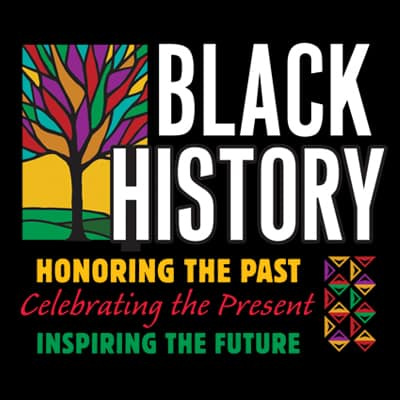By Pamela Hilliard Owens
There are a lot of true facts and a lot of misconceptions about Black History Month, which is celebrated every February in the United States.
Let’s start with a common misconception: that Black History Month was “given to us” and that “they gave us the ‘shortest month of the year’.”
First of all, “they” didn’t “give” us anything. Black History Month is totally FUBU: For Us By Us.
Black History Month is an extension of Negro History Week, which was started in 1926 by Dr. Carter G. Woodson, who wanted to designate a specific time period to educate people and to promote information about Black history and culture. Dr. Woodson chose the second week of February as Negro History Week because that week contained the February 12th birthday of President Abraham Lincoln and the assumed February 14th birthday of Abolitionist Frederick Douglass.
Negro History Week itself was an expansion of the work of Dr. Woodson through his organization, the Association for the Study of Negro Life and History, which he founded in 1915.
The idea behind Negro History Week was to focus and broaden the consciousness and information of Negroes at that time, not to limit the education to one week only. Dr. Woodson strongly believed that Black people should be proud of their heritage and that all Americans should learn about and understand the largely overlooked and underappreciated achievements of Black Americans.
Carter Godwin Woodson was born in 1875 to parents who were illiterate former slaves, and at first, his education was sparse and erratic. He taught himself the common school subjects children usually learn and finally entered high school at age 20, graduating and receiving his diploma just two years later.
Dr. Woodson obtained a Bachelor’s degree in literature from Berea College in Kentucky and a Master’s degree from the University of Chicago. He later became the 2nd Black person to receive a Ph.D. from Harvard University. Dr. W.E.B. DuBois was the first Black recipient of a Harvard doctorate. Dr. Woodson went on to join the faculty of Howard University, including serving as the Dean of the College of Arts and Sciences.
Dr. Woodson soon realized that “white” historical institutions, such as the American Historical Association, had little or no interest in the contributions of Africans in America. So he started the Association for the Study of Negro Life and History in Chicago in 1915. In 1916, Dr. Woodson started the scholarly “Journal of Negro History,” which is still published today under the name “Journal of African American History.”
Negro History Week was observed and celebrated in schools around the country, and by the end of the 1960s, students at several colleges worked for the expansion of Negro History Week into Black History Month, incorporating the struggles of racial injustice, inequality, and anti-imperialism into the already established study of the accomplishments of Black people in America.
In 1976, fifty years after Negro History Week was established, President Gerald R. Ford officially recognized Black History Month in the United States. The announcement coincided with the 200th anniversary of the country’s 1776 Declaration of Independence.
The second paradigm that has been spreading recently among some Black people is that Black history should be celebrated every day and should not be “limited” to just one month out of the year.
The problem with that thinking is that the entire premise behind Negro History Week/Black History Month is to take the time to seriously study and commemorate the accomplishments of Black Americans, not to put limitations on the knowledge.
In 2016, forty years after Black History Month was made official, President Barack Obama summed up how Black History Month should be viewed:
“Black History Month shouldn't be treated as though it is somehow separate from our collective American history or somehow just boiled down to a compilation of greatest hits from the March on Washington or from some of our sports heroes.
"It's about the lived, shared experience of all African Americans, high and low, famous and obscure, and how those experiences have shaped and challenged and ultimately strengthened America.”
Just like you “celebrate” yourself all year long, but have a special acknowledgment of your birth once a year, we can celebrate Black history all year while still setting aside a special time each year to learn even more and commemorate the accomplishments in all fields of not only our ancestors and our elders, but also our current heroes and sheroes. We commemorate Black History Month to teach the children who are our future.
When I was in school, the only "approved” Black scientist we were allowed to learn about was Dr. George Washington Carver. We were taught that he invented peanut butter, and that wasn’t even true. Dr. John Harvey Kellogg (yes, THAT Kellogg), patented the process for making peanut butter to help his patients who had lost their teeth to ingest high sources of protein without having to chew other foods.
Dr. Carver, however, did invent over 300 uses for the peanut and helped southern farmers and former plantation owners to improve their fields by teaching them the principles of crop rotation. But we were never taught that about Dr. Carver. We were never taught about any other Black doctors, scientists, inventors, scholars, soldiers, survivors, or anyone else Black who accomplished anything. The overarching theme of the “history” of Black people was that we were illiterate savages in the African jungles and made into slaves to serve white people. That was it. That was white people’s version of the entirety of the history of Black people.
Those false narratives continued on with the academic, professional, and social restrictions placed on us throughout history to keep us in our “place”: to always be less than and have less than white people in all areas.
Just like Dr. Carter Godwin Woodson instituted Negro History for Black people to learn about their proud history—and to not depend on white people to tell our stories—Black History Month is intended for US to study and to celebrate US within a specific time period each year and then to continue to study, learn, and disseminate that knowledge to others all year long.
On each of the 28 days in February, I will be publishing a Black History fact on my Instagram account. I am concentrating on scientists and inventors. You can see the posts and follow me: instagram.com/pamela_hilliard_owens.
If you enjoyed this article, please feel free to subscribe and to share with others and encourage them to subscribe.





